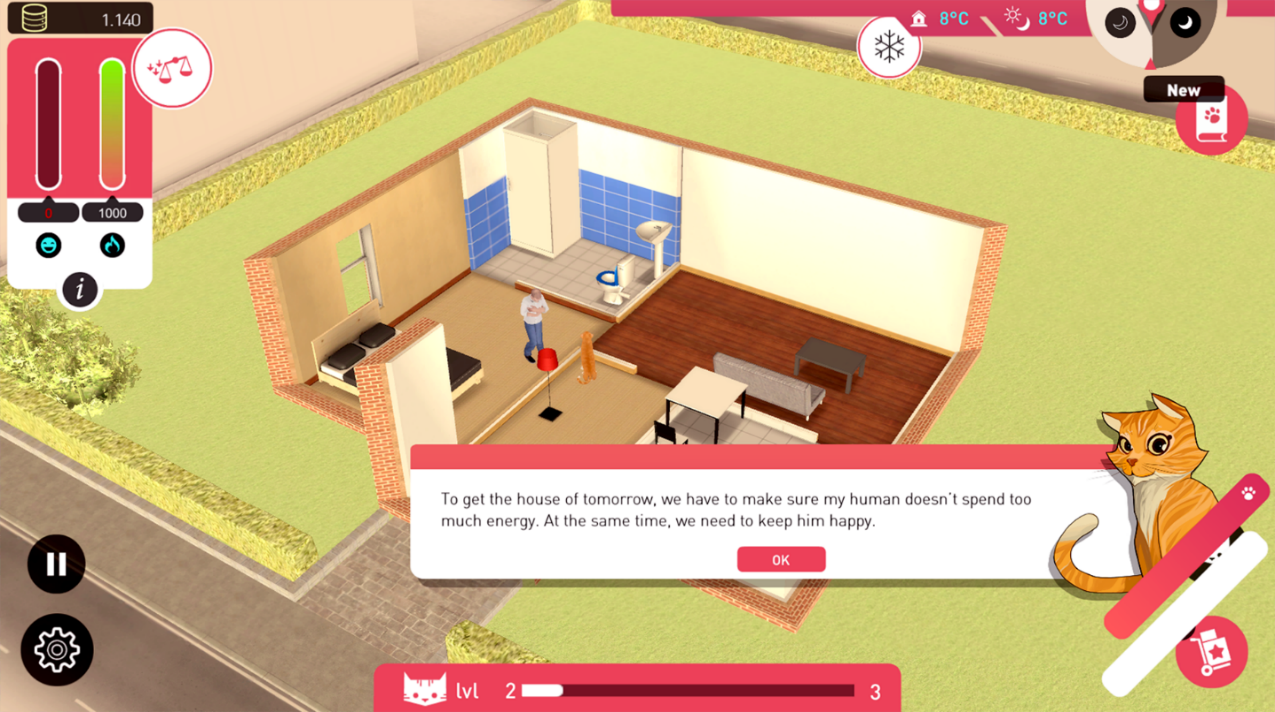Results and insight gained from applying the EnergyCat energy-saving serious game in UK social housing
DOI:
https://doi.org/10.17083/ijsg.v7i2.333Keywords:
Serious gaming;, energy demand reduction;, social housing;, fuel poverty;, sustainability, behaviour changeAbstract
Concerns about climate change associated with the combustion of fossil fuels urge a call for widespread reductions in household energy use. Determining means of achieving this is a key challenge faced by environmental scientists. The current research presents insights gained from a 12-month empirical trial of new serious game for energy, ‘EnergyCat’; which was designed to encourage household energy reductions in the UK social housing sector. Effects of gameplay on consumption behaviours and energy awareness were explored using 82 UK social housing households (versus a no-game control). Results indicated the intervention did not lead to any substantive changes in awareness or consumption practices. However, post-intervention feedback highlighted several issues in terms of game design and usability that may explain why the game failed to change behaviour in this instance. We provide a framework of suggestions as to how the game design process could be improved in order to engage residents in future, including use of adaptive fonts for older residents, and provision of clearer instructions on gameplay objectives at the outset. In addition, researchers should ensure close collaboration is maintained with residents throughout the design process in future efforts, in order to maximise likelihood of ongoing engagement from this population.

Downloads
Published
Issue
Section
License
Copyright (c) 2020 Rebecca Hafner, Alba Fuertes, Sabine Pahl, Rory Jones, Christine Boomsma, Marta Gangolells, Miquel Casals

This work is licensed under a Creative Commons Attribution-NonCommercial-NoDerivatives 4.0 International License.
IJSG copyright information is provided here.